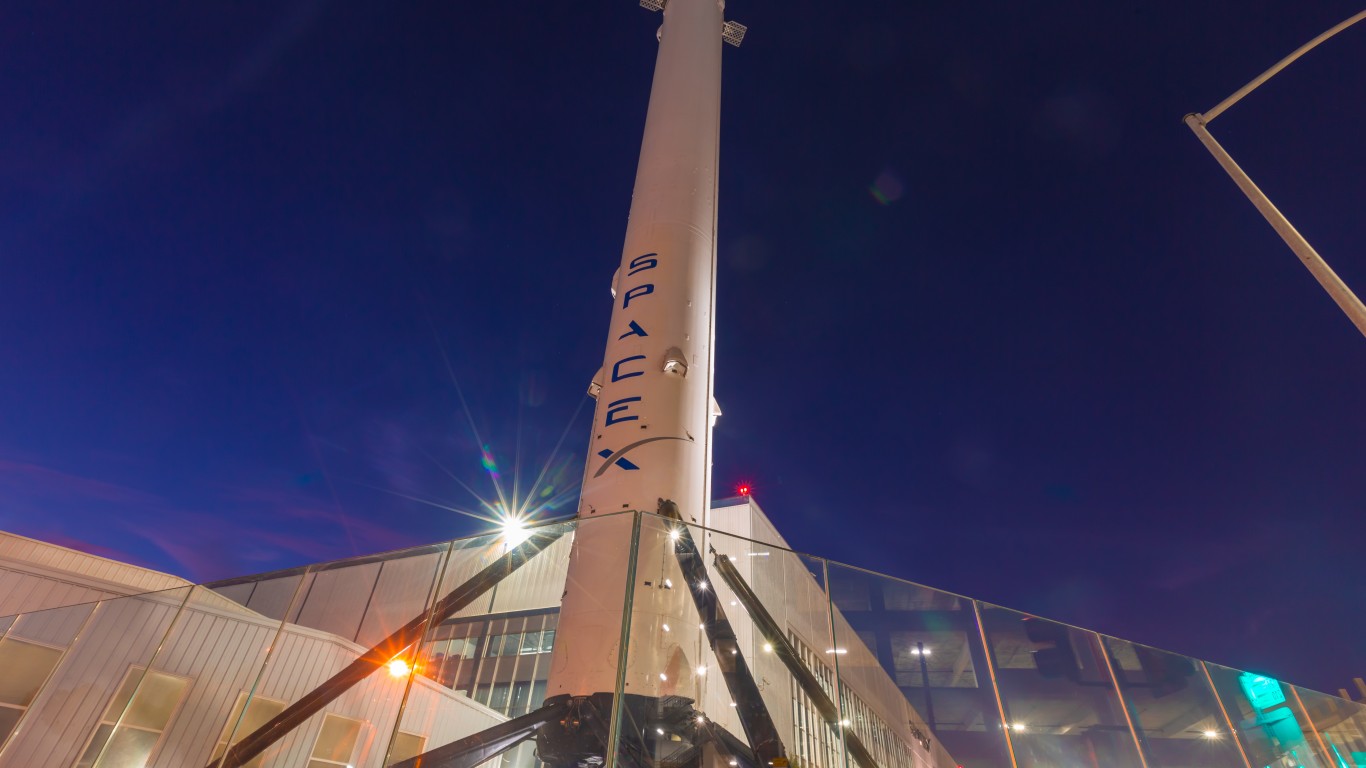
The Soviet Union launched the first satellite, Sputnik, in 1957. Throughout the 1960s and during the Cold War, space was a testing ground for government-funded satellites sent by the Soviets and the United States. Private companies did not begin launching satellites in earnest until the 1990s, and it has proved to be a lucrative endeavor. (Not all Russian space launches were successful. This was one of the worst soviet space disasters.)
To Identify the organizations that own the most satellites, 24/7 Wall St. reviewed the Satellite Database compiled by the Union of Concerned Scientists, a nonprofit science advocacy organization. We listed the 25 government agencies and private companies that own or operate the most satellites. The database, which includes listings of 5,465 satellites currently in orbit around Earth, was last updated on May 1, 2022. It should be noted that many of the satellites are double counted as they are joint operations and are counted for each agency or corporation in the operation.
For decades, American government policy was that only NASA was permitted to launch satellites into space. But private industry has always been involved in America’s space program, with private companies contracted to build NASA-launched satellites, many used for communications purposes. (These are the largest spacecrafts to crash back to Earth.)
Ronald Reagan’s presidency ushered in a wave of deregulation, and part of that was a law passed in 1984 that allowed private companies to launch satellites on their own. Since then, private companies have ferried cargo to the International Space Station, and some have plans to send robotic probes to the moon and mine asteroids for metals.
Of the 25 entities or our list that own the most satellites, 12 are from the United States. Eight of these are commercial enterprises, including Spire Global, Swarm Technologies, Planet Labs, and Elon Musk’s Space X. That company plans to launch Starship, a fully reusable spacecraft designed to carry both crew and cargo, on its maiden flight, possibly on April 17, weather permitting.
Click here to see the 25 companies and agencies that own the most satellites.
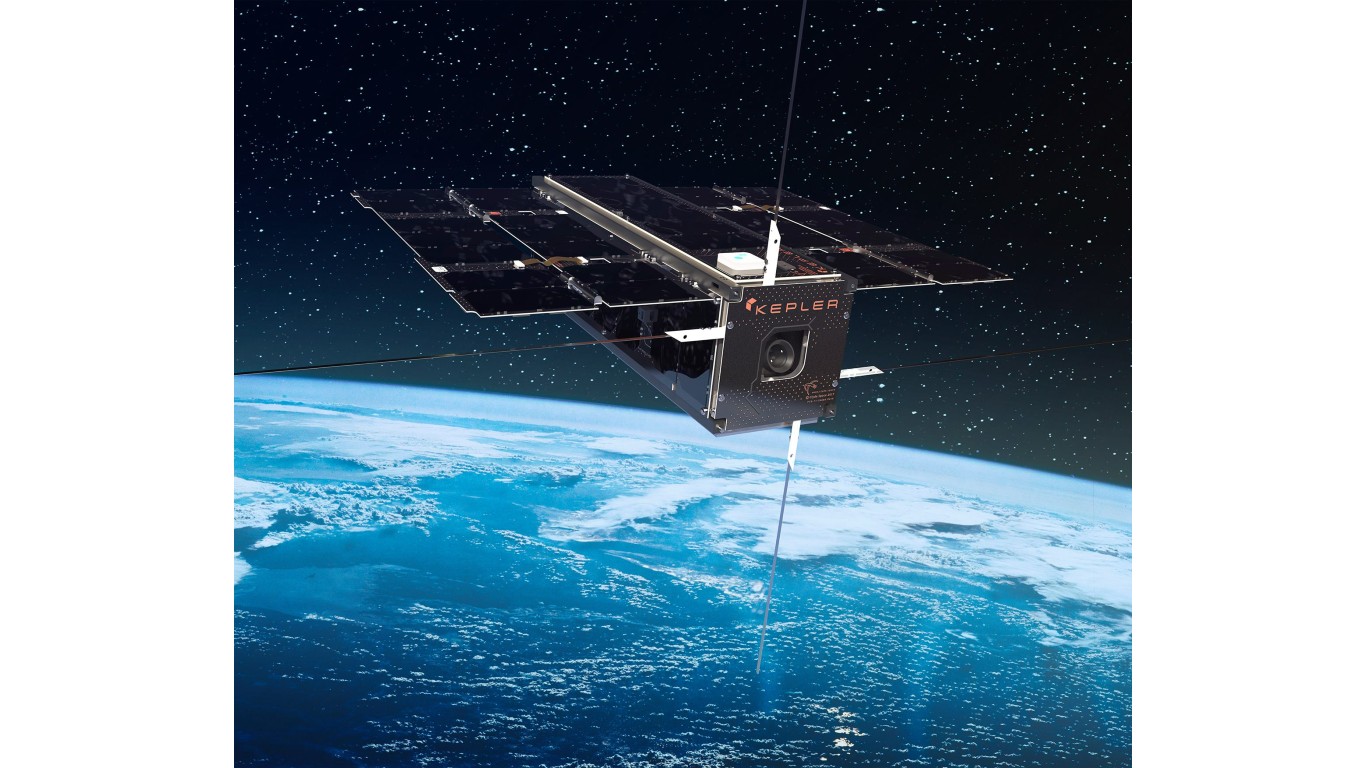
25. Kepler Communications
> Number of satellites: 19
> Country based in: Canada
> Type of organization: Commercial
> Satellite purposes: Communications
> Recent launch vehicle: Falcon 9
[in-text-ad]
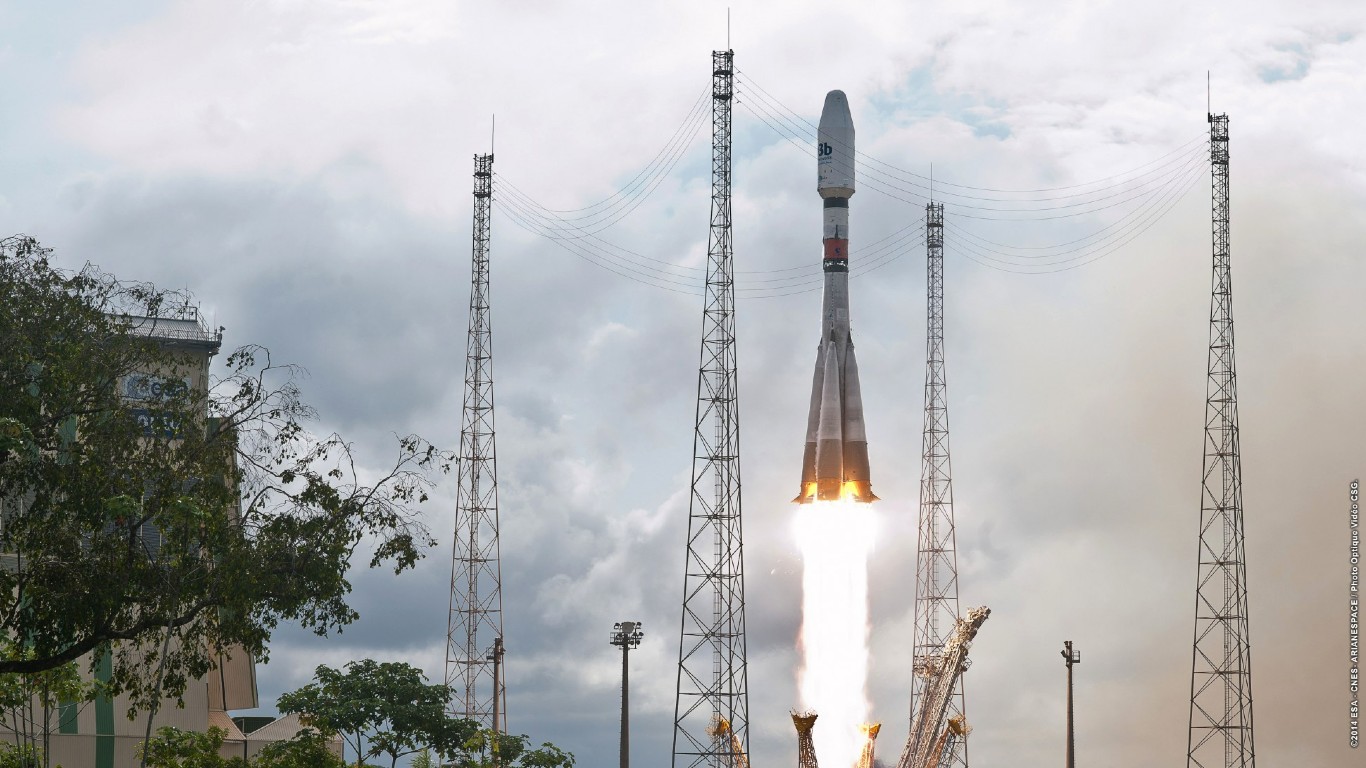
24. O3b Networks Ltd.
> Number of satellites: 20
> Country based in: United Kingdom
> Type of organization: Commercial
> Satellite purposes: Communications
> Recent launch vehicle: Soyuz-ST-B
23. China Aerospace Science and Technology Corp. (CASC)
> Number of satellites: 22
> Country based in: China
> Type of organization: Government
> Satellite purposes: Communications, Earth observation, technology development
> Recent launch vehicle: Long March 3B

22. US Navy
> Number of satellites: 24
> Country based in: United States
> Type of organization: Military
> Satellite purposes: Communications, Earth observation
> Recent launch vehicle: Atlas 3
[in-text-ad-2]

21. Satellogic S.A.
> Number of satellites: 26
> Country based in: Uruguay
> Type of organization: Commercial
> Satellite purposes: Earth observation
> Recent launch vehicle: Falcon 9

20. EUTELSAT S.A.
> Number of satellites: 28
> Country based in: Multinational
> Type of organization: Commercial
> Satellite purposes: Communications
> Recent launch vehicle: Ariane 5
[in-text-ad]

19. Globalstar
> Number of satellites: 33
> Country based in: United States
> Type of organization: Commercial
> Satellite purposes: Communications
> Recent launch vehicle: Soyuz.2.1a/Fregat
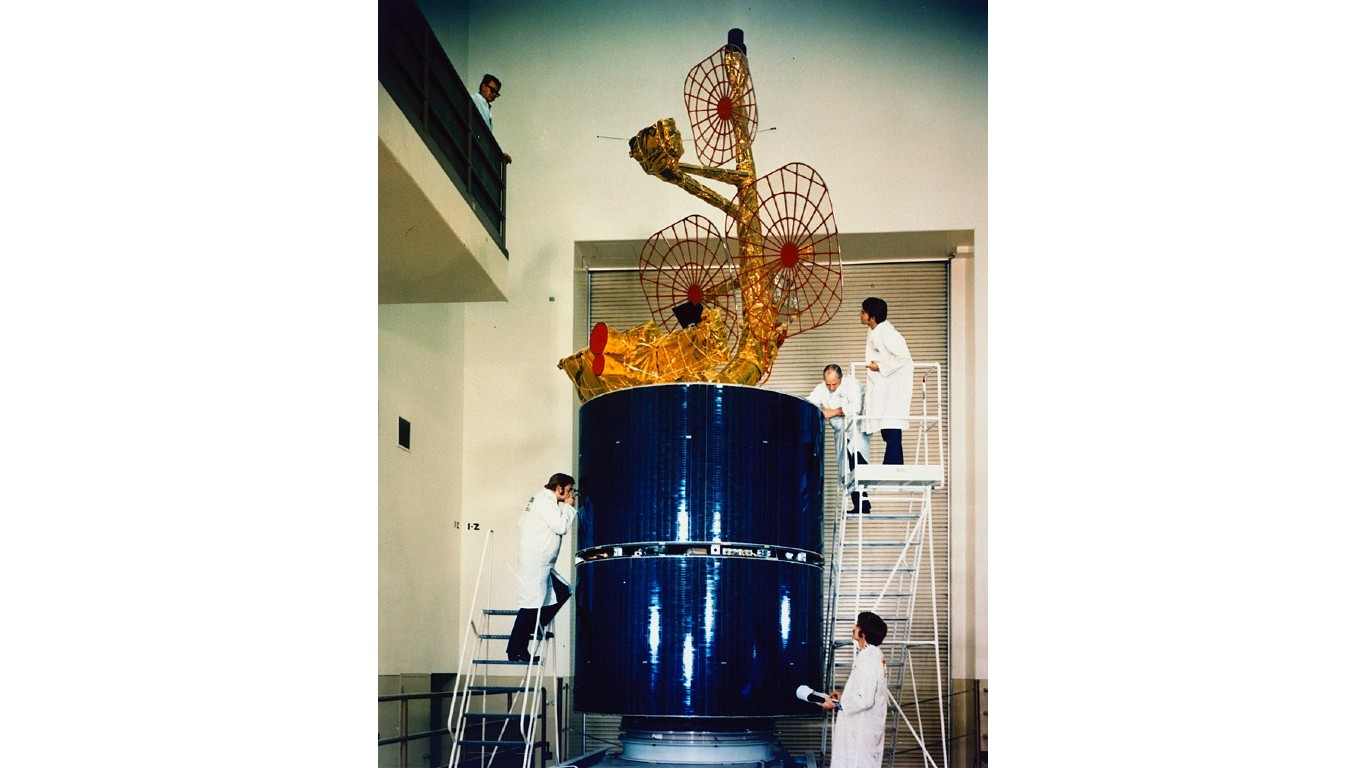
18. Intelsat S.A.
> Number of satellites: 34
> Country based in: United States
> Type of organization: Commercial
> Satellite purposes: Communications
> Recent launch vehicle: Ariane 5
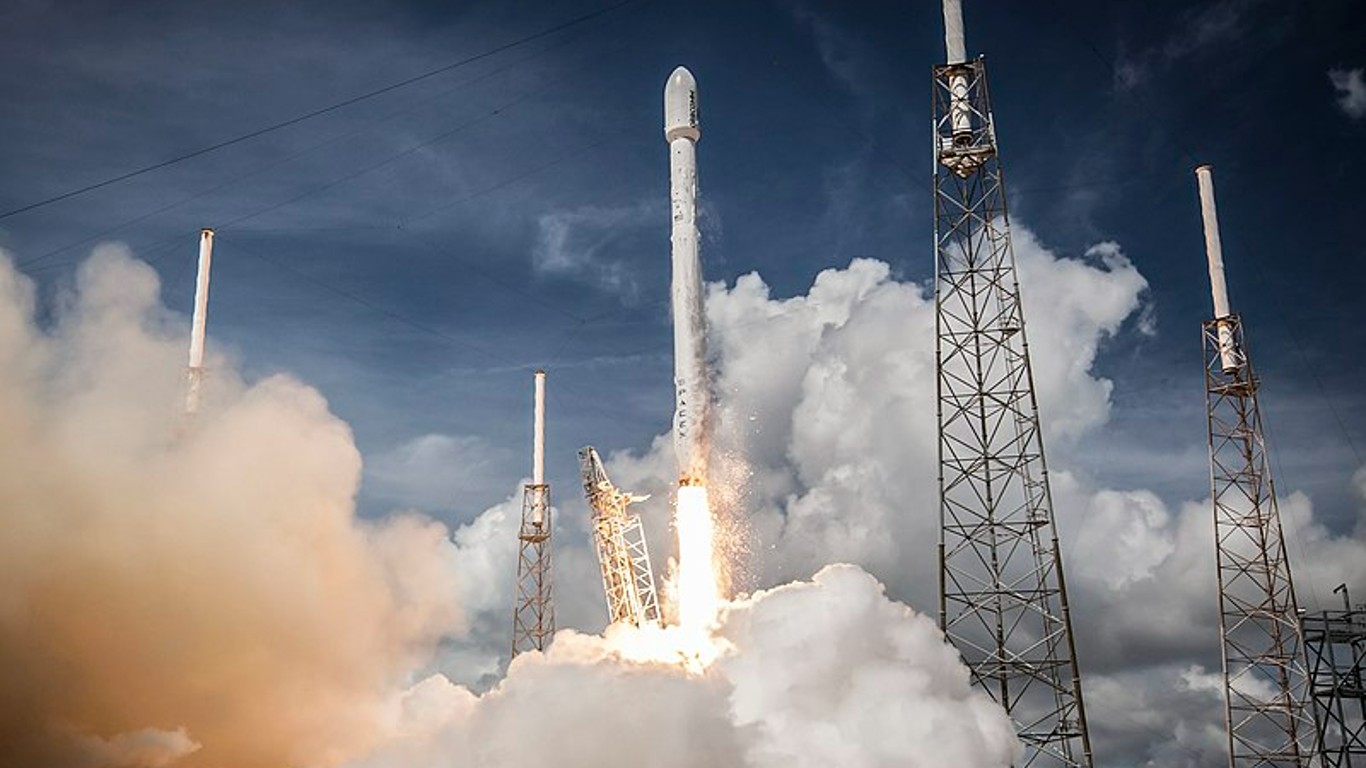
17. ORBCOMM Inc.
> Number of satellites: 35
> Country based in: United States
> Type of organization: Commercial
> Satellite purposes: Communications
> Recent launch vehicle: Falcon 9
[in-text-ad-2]

16. European Space Agency (ESA)
> Number of satellites: 45
> Country based in: Multinational
> Type of organization: Commercial, government
> Satellite purposes: Earth observation, navigation/global positioning, space science, technology development, technology demonstration
> Recent launch vehicle: Soyuz-ST

15. China Academy of Space Technology (CAST)
> Number of satellites: 45
> Country based in: China
> Type of organization: Government
> Satellite purposes: Earth observation, space science, technology development
> Recent launch vehicle: Long March 2D
[in-text-ad]

14. Chang Guang Satellite Technology Co. Ltd.
> Number of satellites: 45
> Country based in: China
> Type of organization: Commercial
> Satellite purposes: Earth observation
> Recent launch vehicle: Long March 11
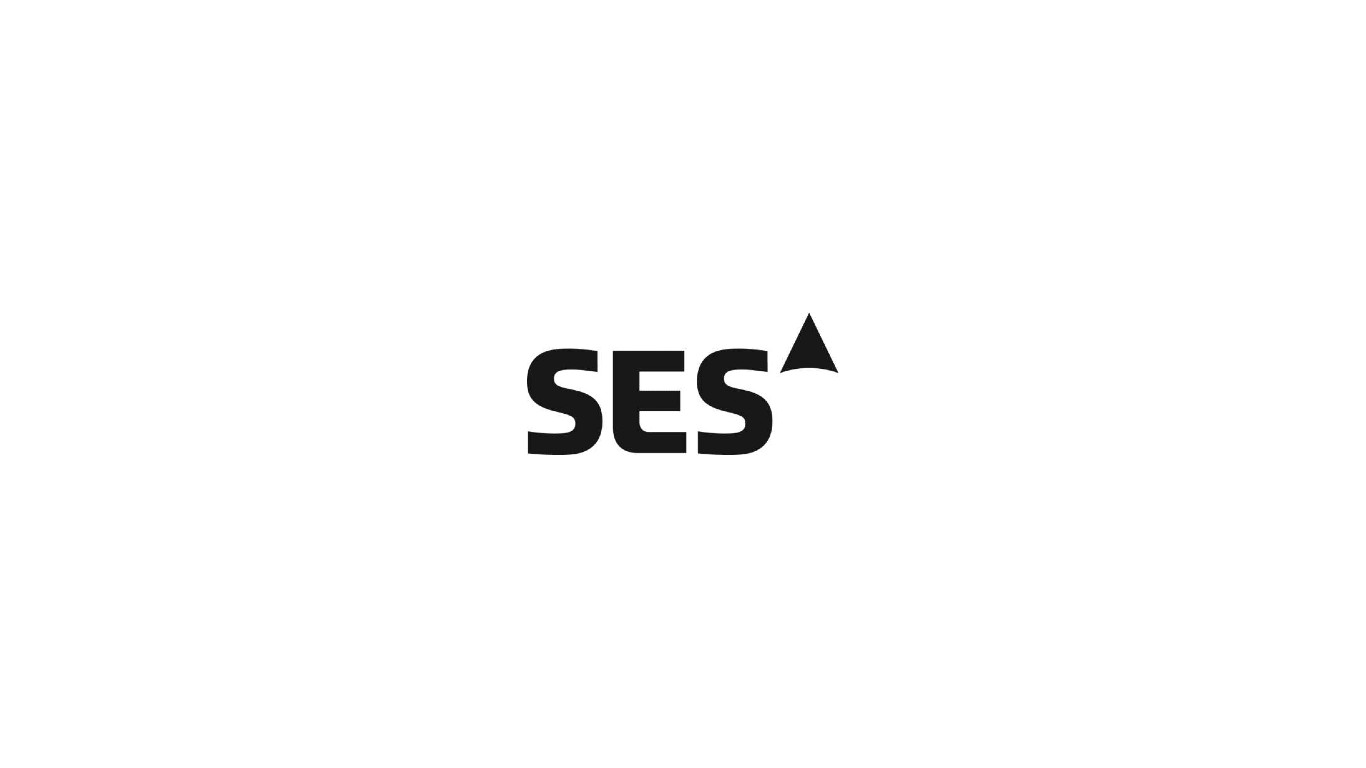
13. SES S.A.
> Number of satellites: 46
> Country based in: Multinational
> Type of organization: Commercial
> Satellite purposes: Communications
> Recent launch vehicle: Ariane 5
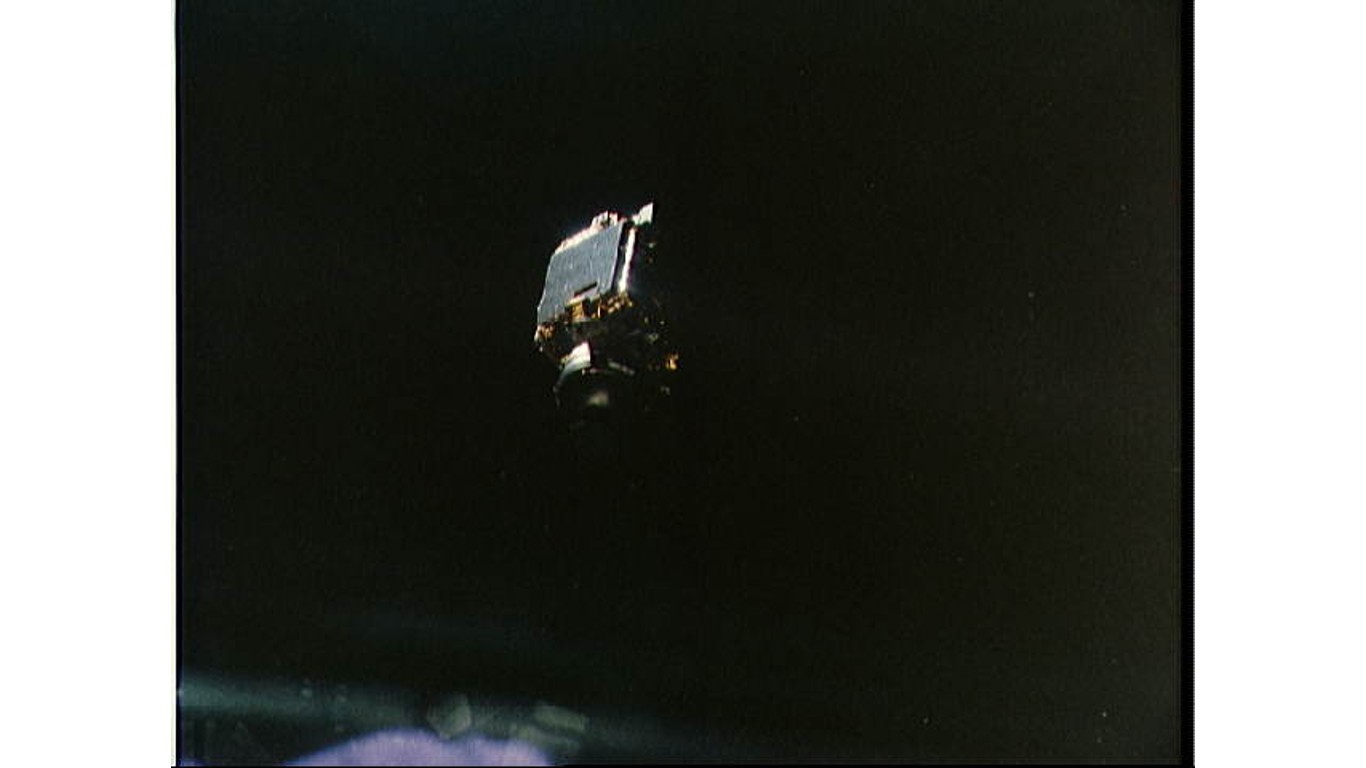
12. Indian Space Research Organization (ISRO)
> Number of satellites: 48
> Country based in: India
> Type of organization: Government
> Satellite purposes: Communications, technology development, earth observation, navigation/global positioning
> Recent launch vehicle: PSLV-XL
[in-text-ad-2]

11. National Reconnaissance Office (NRO)
> Number of satellites: 70
> Country based in: United States
> Type of organization: Military
> Satellite purposes: Earth observation, technology development,
> Recent launch vehicle: Falcon 9

10. Iridium Communications, Inc.
> Number of satellites: 75
> Country based in: United States
> Type of organization: Commercial, government
> Satellite purposes: Communications
> Recent launch vehicle: Falcon 9
[in-text-ad]
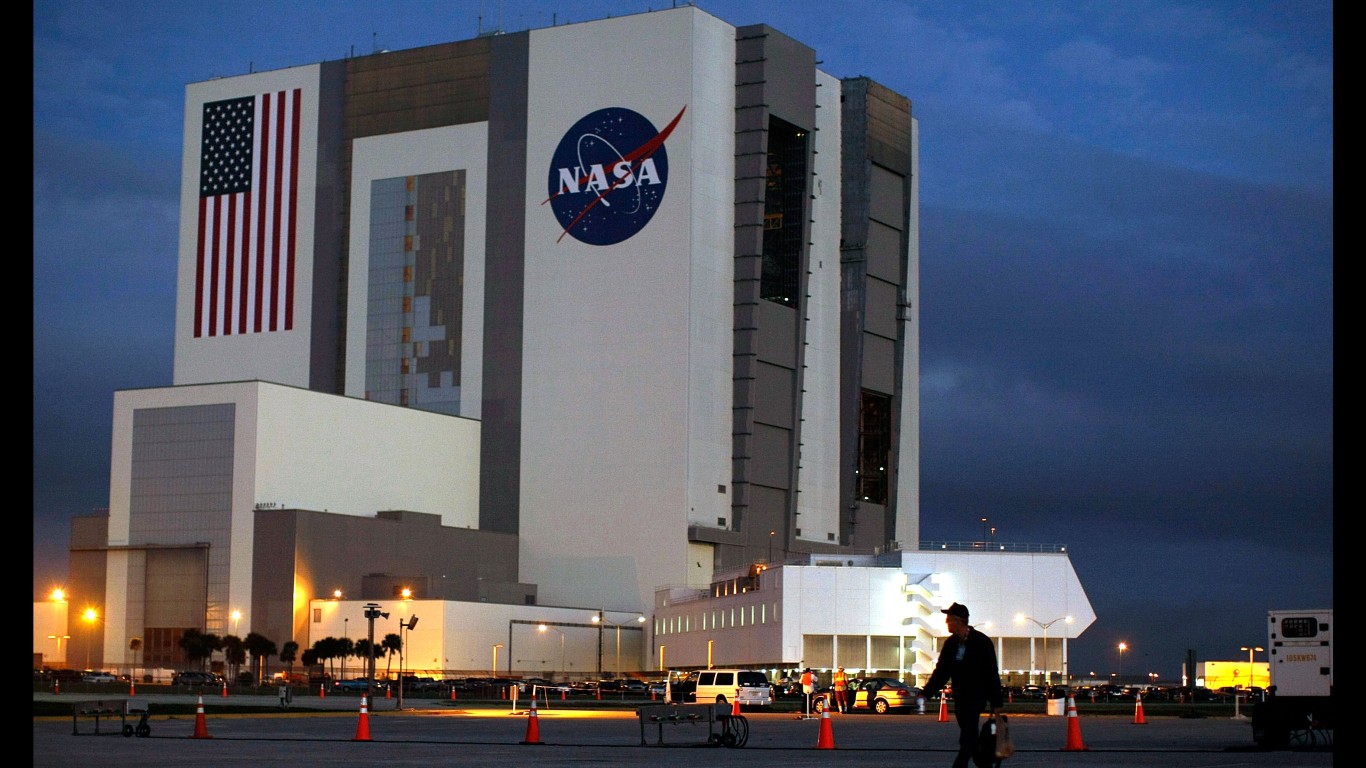
9. National Aeronautics and Space Administration (NASA)
> Number of satellites: 78
> Country based in: United States
> Type of organization: Civil, government
> Satellite purposes: Communications, Earth observation, Earth science, Space science, technology development
> Recent launch vehicle: Falcon 9

8. US Air Force
> Number of satellites: 90
> Country based in: United States
> Type of organization: Military
> Satellite purposes: Communications, technology development, earth observation, navigation/global positioning, unknown
> Recent launch vehicle: Atlas 5

7. Russia Ministry of Defense
> Number of satellites: 96
> Country based in: Russia
> Type of organization: Commercial, military
> Satellite purposes: Communications, earth observation, navigation/global positioning,
> Recent launch vehicle: Proton
[in-text-ad-2]
6. Spire Global Inc.
> Number of satellites: 124
> Country based in: United States
> Type of organization: Commercial
> Satellite purposes: Earth observation, technology development
> Recent launch vehicle: Falcon 9
5. Chinese Ministry of National Defense
> Number of satellites: 135
> Country based in: China
> Type of organization: Government, military
> Satellite purposes: Earth observation, navigation/global positioning
> Recent launch vehicle: Long March 4C
[in-text-ad]
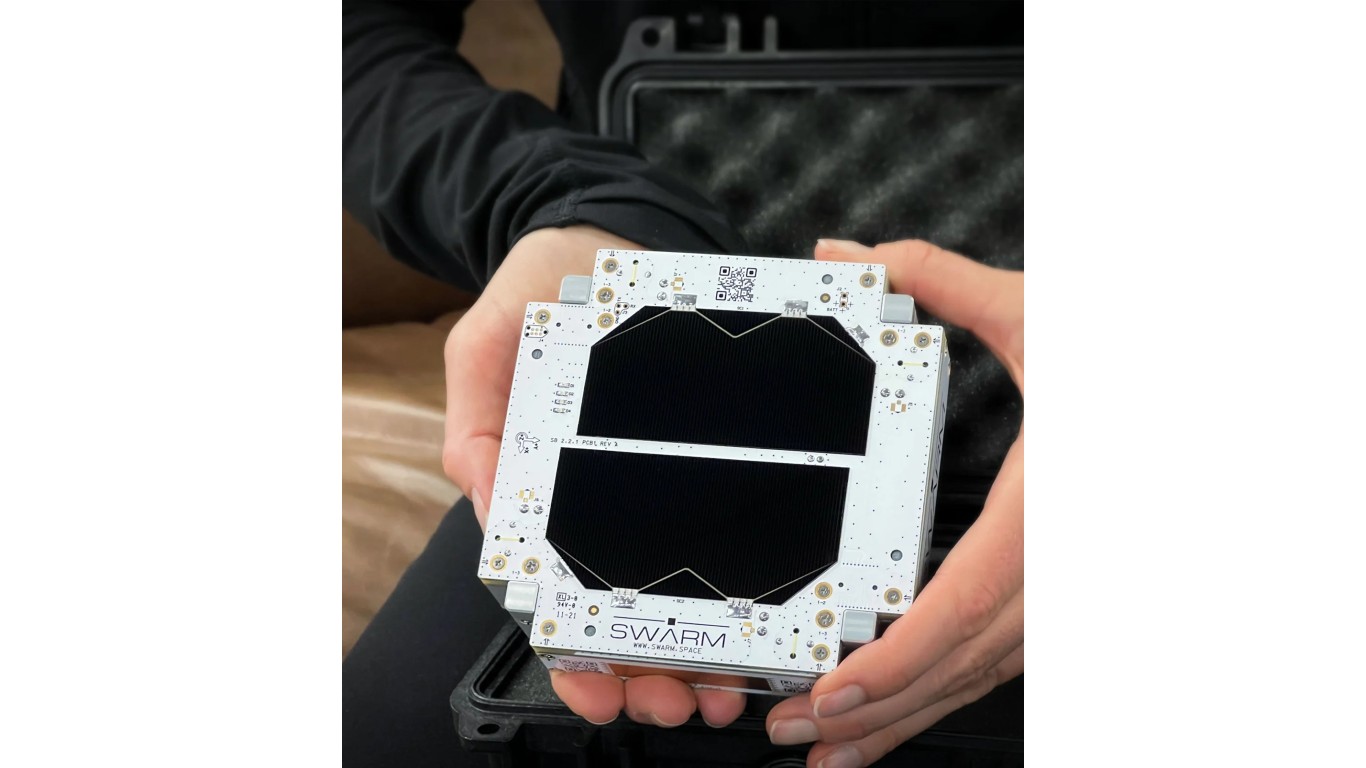
4. Swarm Technologies
> Number of satellites: 151
> Country based in: United States
> Type of organization: Commercial
> Satellite purposes: Communications
> Recent launch vehicle: Falcon 9

3. Planet Labs, Inc.
> Number of satellites: 215
> Country based in: United States
> Type of organization: Commercial
> Satellite purposes: Earth observation
> Recent launch vehicle: Falcon 9

2. OneWeb Satellites
> Number of satellites: 427
> Country based in: United Kingdom
> Type of organization: Commercial
> Satellite purposes: Communications
> Recent launch vehicle: Soyuz 2.1b
[in-text-ad-2]
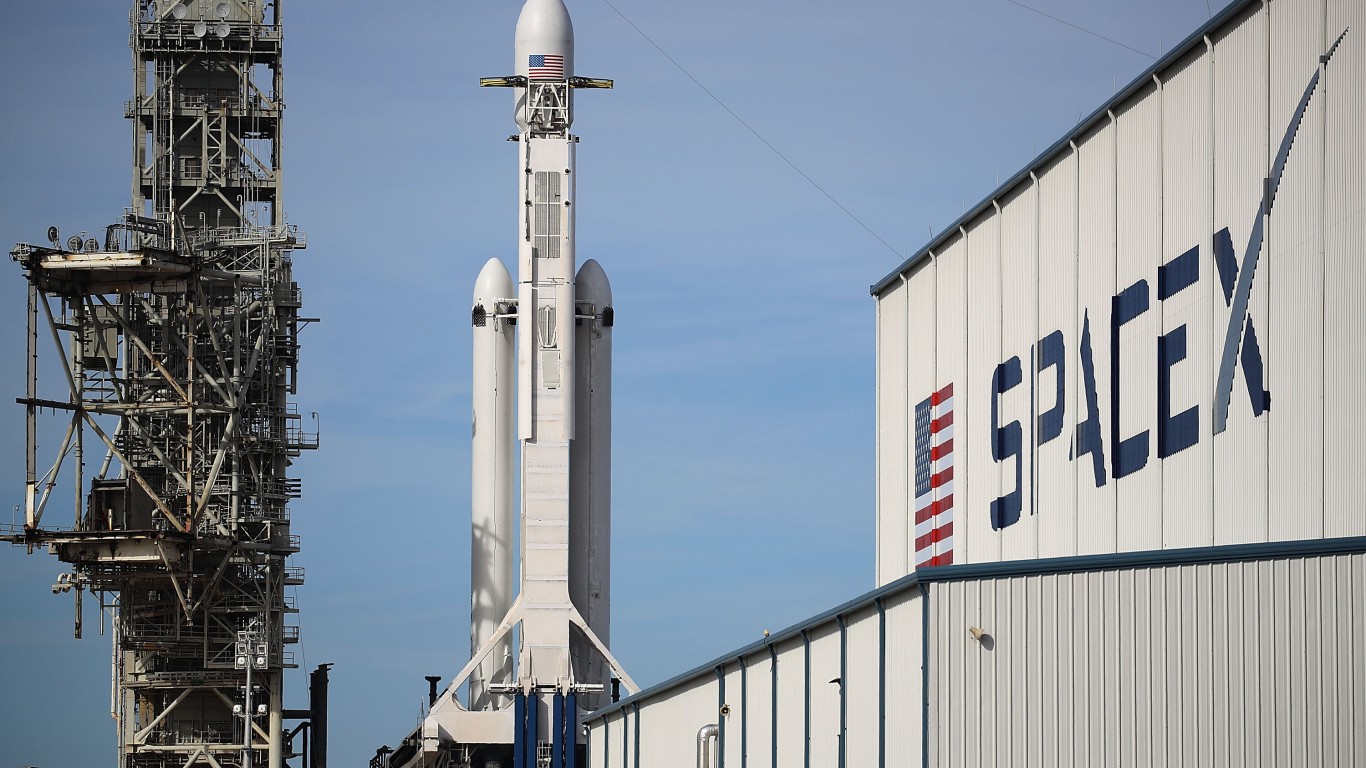
1. SpaceX
> Number of satellites: 2,219
> Country based in: United States
> Type of organization: Commercial
> Satellite purposes: Communications
> Recent launch vehicle: Falcon 9
Take Charge of Your Retirement In Just A Few Minutes (Sponsor)
Retirement planning doesn’t have to feel overwhelming. The key is finding expert guidance—and SmartAsset’s simple quiz makes it easier than ever for you to connect with a vetted financial advisor.
Here’s how it works:
- Answer a Few Simple Questions. Tell us a bit about your goals and preferences—it only takes a few minutes!
- Get Matched with Vetted Advisors Our smart tool matches you with up to three pre-screened, vetted advisors who serve your area and are held to a fiduciary standard to act in your best interests. Click here to begin
- Choose Your Fit Review their profiles, schedule an introductory call (or meet in person), and select the advisor who feel is right for you.
Why wait? Start building the retirement you’ve always dreamed of. Click here to get started today!
Thank you for reading! Have some feedback for us?
Contact the 24/7 Wall St. editorial team.


 24/7 Wall St.
24/7 Wall St. 24/7 Wall St.
24/7 Wall St.





